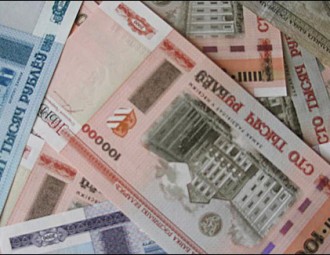Stanislau Bahdankevich: Strengthening of the Belarusian ruble has come to an end
 naviny.by
naviny.by
National currency has been strengthening at the expense of spending people’s foreign currency savings, not at the expense of economic recovery.
The denomination scheduled on July 1 won’t bring any special losses or gains to the state – it is a technical operation of cutting off four extra zeros.
The former head of the National Bank Stanislau Bahdankevich believes that the Belarusian pennies will survive until the new year. The head of the National Bank was ordered to contain the overissue of paper money; otherwise he will be dismissed.
However, the economic situation is getting worse: by January we expect growth of both inflation and devaluation. National currency has been strengthening at the expense of spending people’s foreign currency savings, not at the expense of economic recovery. The situation will become much worse if the IMF and EFSD won’t provide new loans.
The former head of the National Bank Stanislau Bahdankevich told the “EuroBelarus” Information Service about the denomination and economic situation.
- There are concerns that the forthcoming denomination intends to hide the devaluation. How justified are these fears?
- I think they aren’t at all. Prices are given in two variants: in old and in new terms. Nothing changes. This is a technical operation of dropping four zeros.
Now there is ongoing inflation; therefore, devaluation, which has somewhat slowed down, should also be present. But further devaluation of the national currency regarding commodities and services continues, though it has no relation to the denomination.
- During the denomination everyone will face difficulties and challenges anyway. What advice would the former head of the National Bank give so that to avoid possible problems?
- Of course, people will be facing challenges. Over 20 years, we forgot how to count coins. Queues, errors, miscalculations are possible – both because of buyers, sellers, and swindlers. First we need to learn how to drop four zeros. However, prices in the stores will be written in two terms until the end of the year, so that you can always compare the old and new prices. We need not rush with payments and count the money carefully.
It's just that people have already got into the habit of not trusting the authorities. While in fact, all problems are associated with the state of the economy: whether it will start working or will roll further down, whether the National Bank will allow overissue of paper money or not.
Besides, all equipment should be adapted to calculations in rubles and pennies. But it is a technical problem.
Inflation has already occurred before, but it has no connection with the denomination. It is caused by the poor performance of the economy, lack of competition, and bigger rate of salary growth over productivity - deep laws of classical economics have been violated.
- If the Belarusian economy will maintain the status quo, how long will Belarusian pennies live?
- I’ve met with the current bank's management at the roundtable at the National Bank. Chairman of the National Bank Kallaur stated: the president warned him that in case of high inflation due to benefits at the monetary market he will be dismissed. Kallaur was given carte blanche - to avoid emissions; he will be holding out till the end. If he endures it and won’t allow the increase of the money supply in the situation where the volume of production is falling, then inflation will be tolerant. And if he will allow, (GDP will fall, production will decrease, and the money supply will only increase), inflation and devaluation will increase.
- Let me repeat: will coins survive till the new year?
- They will! I believe that Kallaur will be holding out. I don’t think it will collapse.
Over the past six months, the people have become poor, so even the Belarusian ruble has strengthened against the dollar. It strengthened not because the economic situation has improved, but because the population used to have certain savings in foreign currency, which are now converted into rubles and are spent to maintain the level that has been reached previously.
But I think that the strengthening of the ruble is, apparently, over, and by the end of the year we should expect increased devaluation. There is no economic improvement, no competition; there are only foolish decisions of the authorities to interfere into business, into small businesses, in market trade, which only makes the situation worse. The economic situation is very bad, and will only worsen by the end of the year.
Especially if the International Monetary Fund (IMF) and the Eurasian Fund for Stabilization and Development (EFSD) will give no loans; if they give us billions, we will safely last until the new year.
-
03.01
-
07.10
-
22.09
-
17.08
-
12.08
-
30.09










































